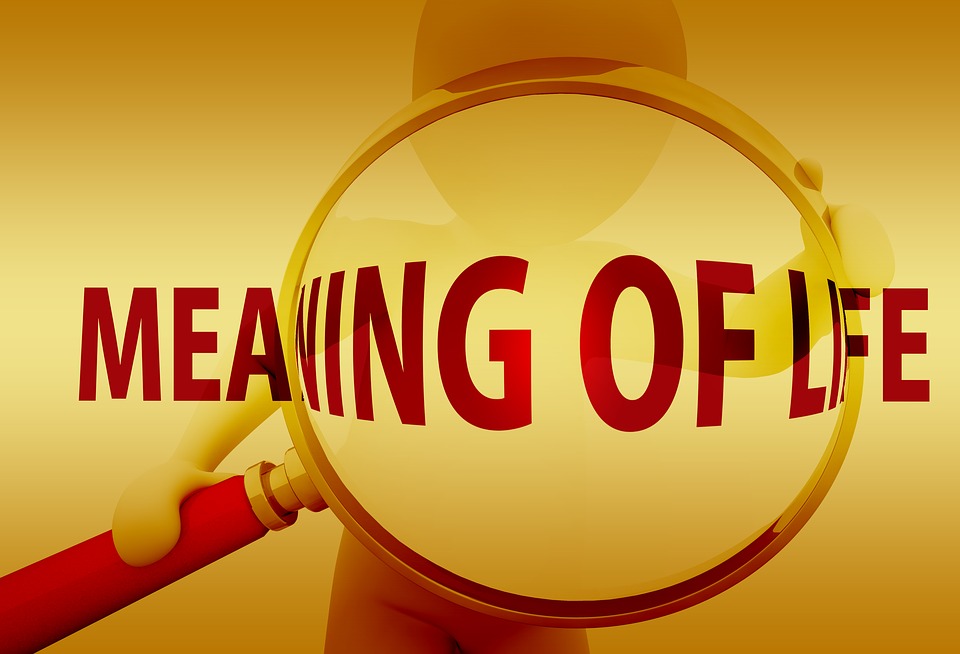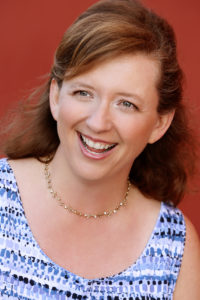Why We March
Assuredly, the legal profession is part of a system (the judicial system) that plays an important role in the proper functioning of our society. So, too, does the First Amendment and the fundamental right to peacefully assemble and freely express our ideas and opinions, all in the furtherance of an informed citizenry and responsible discourse.
Ever since I set out to attend U.C. Berkeley as an undergraduate and budding journalist, I’ve had a deep reverence for the First Amendment, and to being an active participant in our electoral system.
My senior year in college, I lived in an international house with students who came to U.C. Berkeley from around the world. I was one of the few Americans who lived in this shared housing that had space for about 20 students. On Wednesday evenings, all the student residents were expected to participate in the household dinner preparations, followed by a group discussion. We would rotate through, with each of us taking a turn at least one Wednesday per term serving as the ‘keynote speaker’ for the evening. We were encouraged to share cultural insights about our home countries. Typically, students would provide photos or slide shows from home.
When it came around for my turn at the helm, I decided to make the U.S. Constitution my topic of discussion. I read aloud the words of the First Amendment, and asked for each person to share what that meant to them when comparing it to the concept of freedom of expression in their home countries. Naively on my part, I expected a lively discussion. The most “telling” part of the conversation, however, was the silence. Hardly any of the foreign students felt comfortable enough to speak up. I learned a lot that evening. More than I ever anticipated. And more than I could have ever learned without the diversity of that group assembled.
This edition of Soul Notes is dedicated to free speech, the right to be heard, and the right to vote.
“What they all had in common: A sincere desire to make a positive impact in our country, and to have their voices and opinions heard. There were tears and cheers. Laughs and smiles. There were also expressions of focused determination.”
A Legion of Women Brought Together for a Common Purpose
This past weekend, I attended a gathering of women, and one man, who met at a co-work space near midtown for an event led by the organizers of this year’s Women’s March Los Angeles. My intentions were two-fold: 1. Learn more about this year’s March and what the organizers were planning; and 2. Receive the facts firsthand (and not via potentially wildly incorrect secondhand information) about the organization, its functions and mission.
Taking place one week prior to the second annual Women’s March, at this weekend’s gathering, we painted signs, and chatted with others who either went to the March last year, or were planning to go this year, or both. Midway through the event, several of the organizers spoke to the group, and fielded questions from the audience. In the audience were school teachers, business owners, stay at home parents, community leaders, and activists from a wide spectrum of socio-economic backgrounds, ethnicities, and countries of origin.
What they all had in common: A sincere desire to make a positive impact in our country, and to have their voices and opinions heard. There were tears and cheers. Laughs and smiles. There were also expressions of focused determination. As I looked around the room, and conversed with some of the women, and listened to impassioned comments from the audience, and asked my own questions of the organizers – a visceral response came over me. What must it have felt like to be one of the women who attended the early organized suffragette meetings? Was it something akin to what I was experiencing at that very instant? My next realization was this: I, however, wasn’t risking life and limb to attend this gathering. Those women, though, a short century ago – the suffragettes — certainly were and did. In that moment and in my heart, I thanked them for paving the way for us.
A few things that I was able to confirm at the meeting, hearing directly from the organizers: Women’s March Los Angeles is a 100% volunteer run, nonprofit organization. All proceeds made through the sale of tshirts and hats and other merchandise go toward administrative costs. No one is paid to participate in the March. Billionaire George Soros is not a donor, nor has he had any involvement with Women’s March Los Angeles.
“The march is open to everyone who stands for human rights, civil liberties, tolerance of diversity, and compassion for our shared humanity.” — Women’s March Los Angeles
While an estimated 750,000 marchers participated in last year’s March in downtown Los Angeles, the organizers are expecting a smaller crowd in L.A. this year. Is that because of diminished interest this year? According to the organizers, it’s the opposite: Last year’s large turn-out inspired a number of other, smaller cities throughout California this year to form their own Marches. So instead of traveling hundreds of miles to participate in the March in L.A., many are staying closer to home. At least twenty other formally organized Marches are scheduled to take place throughout California this time around.
An Election Year
Like last year, the organizers planned out this year’s March with careful precision and with the full intention of bringing together a peaceful assembly. The organizers have put into place various levels of security and safeguards to allow for an environment that’s conducive to raising awareness, respectfully, about what they deem to be critical issues. With 2018 being an election year, this year’s March will be focused on addressing: voter turnout, access to the polls, voting restrictions, and voter intimidation. The organizers intend to continue a dialog about these issues and to create a concerted plan of action leading up to and after the November 2018 elections. I applaud their efforts, and am grateful to have been able to participate in that planning meeting.
While the intricacies and merits of specific policies may be debatable – and that’s the beauty of a representative democratic republic – the rallying cries remain the same:
Being heard matters.
Unifying our voices matters.
Access to voting matters.
And, so it is.
To the Republic for Which We Stand.
Okay, your turn:
In what ways have you voiced your concerns, if any, about the electoral process? What actions, if any, have you taken? Is marching in the streets effective – why or why not?
I invite you to SHARE your thoughts, feelings, and experiences in the Comments section, below. Soul-to-soul!



 It’s a particularly energetically charged time in the United States, as evidenced by recent politically volatile and even at times highly venomous and violence-infused protests, and counterprotests, resulting in understandable public outcries and feelings of despair and disbelief.
It’s a particularly energetically charged time in the United States, as evidenced by recent politically volatile and even at times highly venomous and violence-infused protests, and counterprotests, resulting in understandable public outcries and feelings of despair and disbelief. What if duality were no longer how we positioned things? What if we were to approach these political divides from a place of universality, instead? As humans, after all: We share the same air, bleed the same blood, shed the same tears.
What if duality were no longer how we positioned things? What if we were to approach these political divides from a place of universality, instead? As humans, after all: We share the same air, bleed the same blood, shed the same tears.
